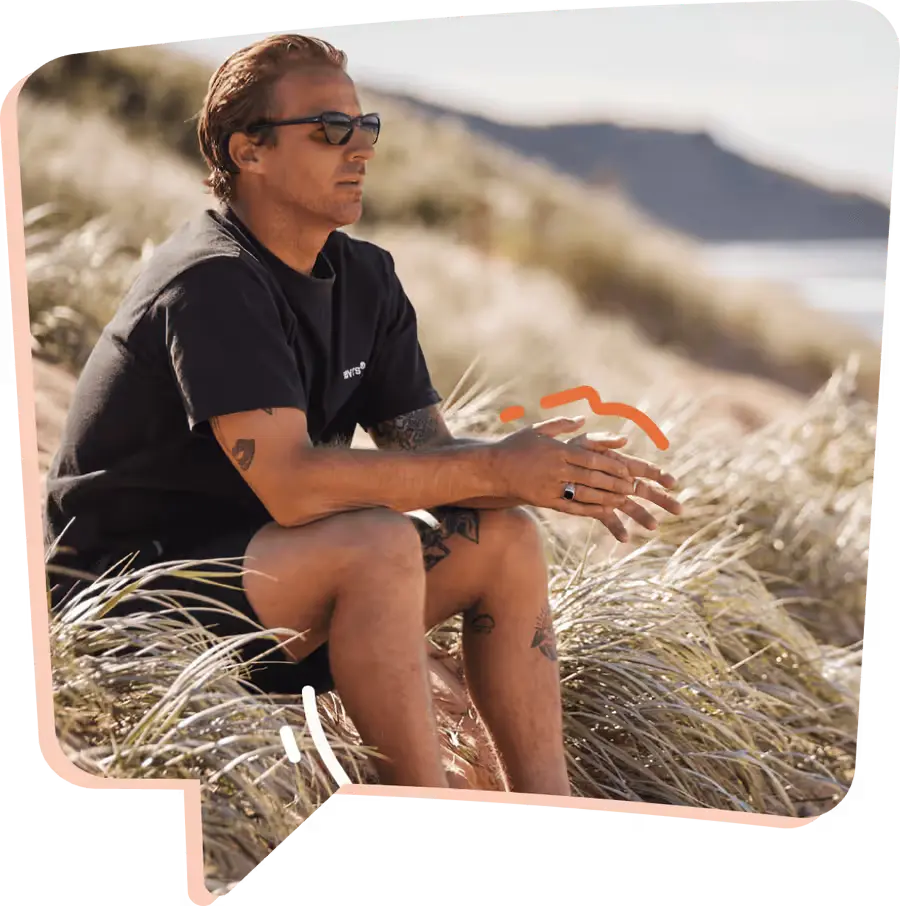 Support For Ankylosing
Support For Ankylosing 
Spondylitis
Managing your ankylosing spondylitis (AS) takes a team. Aim to surround yourself with a good team of healthcare professionals and people you can trust to offer non-judgmental support.

Ways to get support
Whatever your goals in life, your biggest advocate should always be you. But having a good team of healthcare professionals behind you, along with the support of family and friends, is key in managing your AS.
While your first port of call should be a rheumatologist who can help you define your goals and develop a shared management plan to work towards achieving them, they may well recommend other therapies and healthcare professionals to support you – mind & body. For example, a physiotherapist can give you an exercise plan to help you stay flexible and moving, while a psychologist or counsellor can help you manage the mental impact of living with a chronic condition.
Joining an AS support group and sharing experiences with others living with AS can make you feel less alone and help reduce your emotional burden.
Follow the links below to access more information, resources and support for living with AS.
Creaky Joints Australia
Creaky Joints Australia helps Australian arthritis patients and their families to find reliable information and support about their condition. It offers opportunities to become involved in advocacy and helps link patients to patient-centred research opportunities as they become available.
Ways to get involved with Back Yourself and give support
Whether you’re living with AS, you know someone who is, or you’re a rheumatologist or healthcare professional treating someone with AS, you can get involved in Back Yourself in a number of ways.
- For those with AS:
- Share your story on social media with us and those around you
- Start doing the Exercises for AS (with approval from your doctor).
- Use our Conversation Guide to start having more open and honest conversations with your rheumatologist and healthcare team about managing your AS.
- For those wanting to provide support:
- Share the story of a friend or loved one living with AS (with their permission, of course).
- Share the Conversation Guide
- For health professionals wanting to provide support:
- Refer your patients with AS to the Back Yourself website.
- Encourage the use of the Conversation Guide to help patients with AS to clarify their goals and live better with AS.

Remember: you’re not alone.
Self-management is an important tool for mental well-being. But it’s just as important to know when to seek additional support. If you’re concerned about your mental wellbeing or would like to access a federal government subsidised mental health care plan, your GP is the best person to help.
If you’re in need of more urgent assistance, you can reach out to any of the below helplines for fast and confidential support.
Lifeline
www.lifeline.org.au
You can also call 13 11 14, 24 hours / 7 days a week.
Beyond Blue
www.beyondblue.com.au
You can call 1300 22 4636, 24 hours/7 days a week, chat online or email.

Ready to take control of AS?
Your rheumatologist and healthcare team are your best allies in taking control of AS. It doesn’t matter whether it’s been one or many years since your diagnosis with AS, it’s never too late.
If you think AS is holding you back or impacting your life, it’s time to talk to your rheumatologist about your goals and how you’re managing. Don’t let AS hold you back, take control.
Download the guide to help you make the most out of your conversations with your doctors.
Download the Conversation GuideDownload the Conversation Guide



